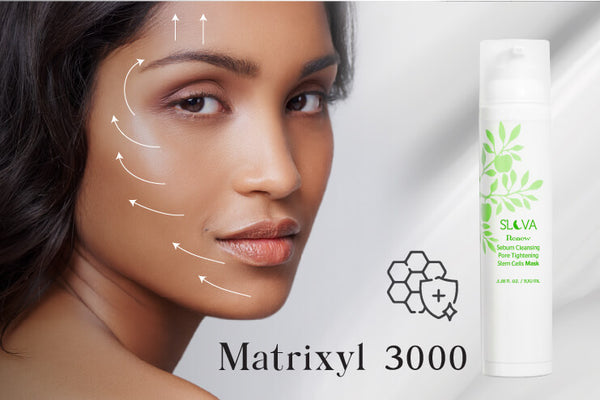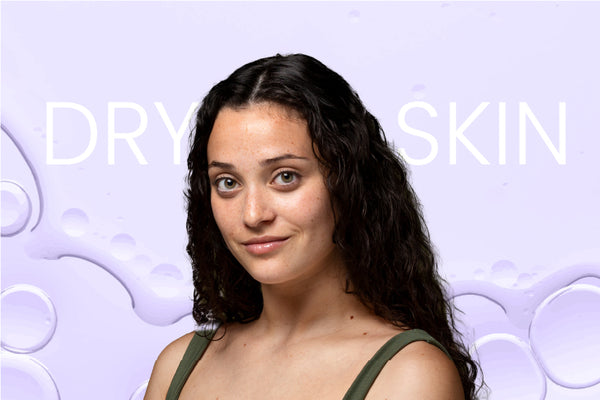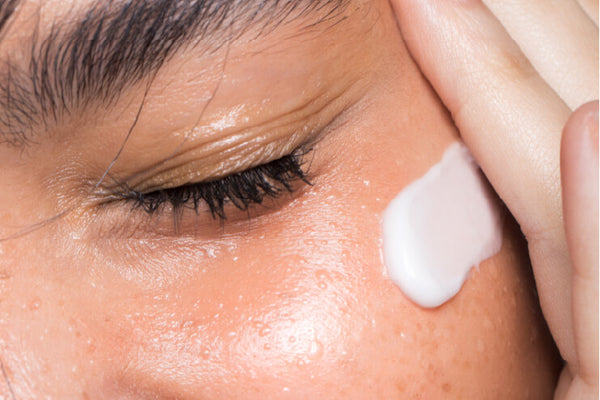Note: "Add 2 products to avail Buy 1 Get 1.
Not Applicable on Combo products."
Niacinamide: A Powerful Ingredient You Must Add To Your Skincare Routine

Niacinamide, also known as nicotinamide, is a form of vitamin B3, that offers a wide range of well-documented and well-researched topical benefits. Among the other worthy ingredients like vitamin C, Retinol, AHA, and MatrixylTM 3000, you must put your attention to this powerhouse skincare ingredient: Niacinamide.
It is especially applied to the skin to treat skin conditions like acne and eczema. It is also one of the best cosmeceuticals for anti-aging. Since our body cannot produce vitamins on our own, to reap the maximum benefits of vitamins, we must either take supplements or apply them topically.
There are several benefits of niacinamide when applied on the skin, according to a study: "Because of its verifiable beneficial effects, niacinamide would be a suitable component in cosmetic products for use in disorders of epidermal barrier function, for aging skin, for improving pigmentary disorders, and for use on skin prone to acne."
Read more to know why you should add this super powerful and beneficial ingredient to your skincare routine right away!
Skin benefits of Niacinamide
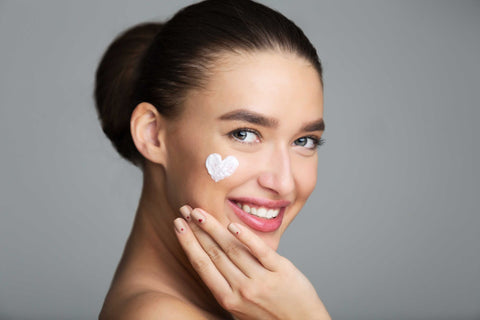
Reduces the effects of aging on the skin
This powerful ingredient is popular for its anti-aging effects on the skin. It lightens the dark areas (treats hyperpigmentation) and also decreases wrinkles and fine lines. It can work with the natural substances in the skin to enhance the skin's natural barrier which helps in reducing the formation of wrinkles. As we age, the production of collagen in the skin is reduced, causing wrinkles and fine lines to appear. Applying niacinamide topically increases the production of collagen thus reducing the signs of aging. According to a study published in the Dermatologic Surgery Journal: "using a moisturizer with 5% niacinamide twice daily reduced the appearance of wrinkles significantly by 8 weeks."
Reduces the risk of skin cancer
According to a study published in the American Health Drug Benefits, taking vitamin B3 can prevent skin cancer and actinic keratosis. The study also claimed that niacinamide “cut the rate of new squamous-cell and basal-cell skin cancers by 23% compared with placebo after one year among patients at high risk for skin cancer.” These results are solid evidence that niacinamide reduces the risk of skin cancers.
Reduces skin inflammation
A study has proved that using topical niacinamide reduces the inflammation of the skin as it has anti-inflammatory properties. Typically inflammation of the skin can be described in four ways: swelling, redness, pain, and increased heat due to an increased blood supply. Niacinamide is very important for those who suffer from acne vulgaris and rosacea. It was also found helpful for those with chemical-induced skin sensitivities.
Adds moisture to the skin
The benefits of niacinamide to retain moisture are not just for those with dry skin types. It can also help regulate the amount of oil the sebaceous glands produce and prevent them from going into overdrive, leaving you with cleaner and less oily skin.
Oily skin, especially associated with hormonal changes can wreak havoc on your skin, but vitamin B3 can regulate the oil of your skin.
Reduces hyperpigmentation
Too much exposure to the sun can cause severe skin damage like dark spots. Our skin produces a chemical called melanin to protect itself from the sun. Too much sun exposure can cause a clump of it to form, which can result in dark spots. Niacinamide rebuilds healthy skin cells, thus reducing the appearance of dark spots and preventing any further damage from the sun's UV rays.
Niacinamide can be used with…
Niacinamide can be used with any of the products/active ingredients in your skincare routine. For example - Vitamin C, retinol, hyaluronic acid, peptides, AHA, BHA, and all types of antioxidants.
How to add Niacinamide to your skincare routine
When you are thinking about adding niacinamide to your skincare routine, always look for a product with 2-10% niacinamide content. We know adding a step to the skincare routine can be very tough. So for this, we recommend you do your basic cleaning and toning steps. For your serum step, you can add anti-agers like vitamin C, retinol, or an alpha hydroxy acid, and finish this step by applying niacinamide. You can either apply the serum directly or you can also mix it with your favorite moisturizer.
Is Niacinamide safe for my skin type?
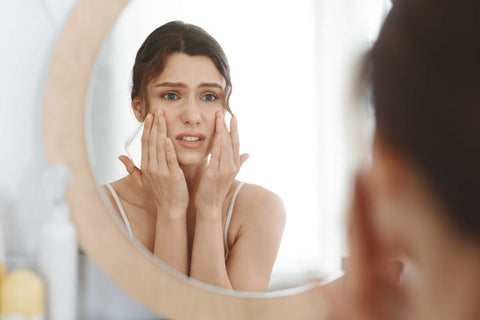
Niacinamide is safe to use for all skin types, be it dry, oily, or combination. It is also suitable for people with sensitive or rosacea-prone skin. In your skincare routine, you can use multiple niacinamide products, as it will still be non-sensitizing because this ingenious B vitamin is easily tolerated by all skin types.
Possible side effects of Niacinamide
Niacinamide, when used topically, is usually safe to use for all skin types. However, if you have a history of skin allergies or skin reactions, you might want to consult a dermatologist before using it. Typically a low concentration of niacinamide (1-2% in a particular product) is advisable to use, however, overusing it can cause skin reactions like itching and redness.
To avoid any surprise side effects, do a patch test beforehand. Take a pea-size amount of the niacinamide product and apply it to your arm. Wait for 24 hours, if you experience any redness, itching, or swelling, discontinue the use. If there is no skin reaction, it is safe to apply elsewhere.
